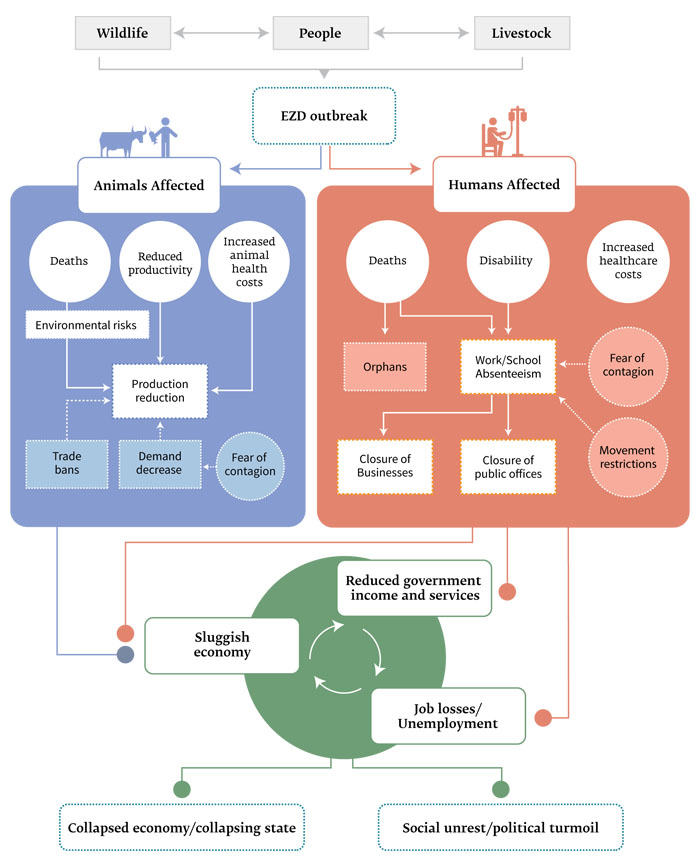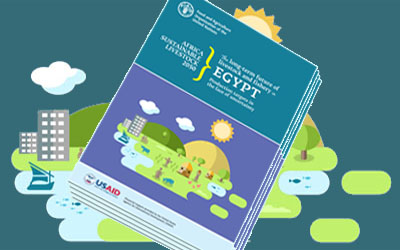In this dynamic context, a major challenge is to ensure a stable supply of food for a growing affluent and urbanized population, including animal source foods. The FAO has joined forces with the Ministry of Agriculture and Land Reclamation, the Ministry of Health and the Ministry of Environment to identify opportunities and challenges for a sustainable long-term growth and transformation of the livestock and fishery sectors.
The Report “The long-term future of livestock and fishery in Egypt: Production targets in the face of opportunities” shows that, with a conducive policy and investment framework in place, the two sectors will be in a position to sustainably provide sufficient animal protein for the growing population to be food secure and well-nourished in 2050. However, the Report also warns that, should policies and investments reveal inadequate, the growth and transformation of the livestock and fishery sectors could result in social tensions, environmental degradation and public health threats.
The Report emphasizes the importance to prioritize the implementation of all actions necessary to create an enabling policy and investment framework as well as to increase the country capacity to prevent, detect and respond to outbreaks of (re)-emerging zoonotic diseases (EZDs). An EZD that goes uncontrolled can have devastating impact on the livestock and fishery sectors, on human health and, in the worst scenario, it might even jeopardize the entire development trajectory of the country and become a pandemic, similarly to what is happening with COVID-19.
Potential impact of an outbreak of an emerging zoonotic disease (EZD)

The government of Egypt and the FAO, in the context of the FAO Global Health Security Programme, will continue advocating for and supporting a One Health multi-disciplinary multistakeholder process to operationalize existing policies and strategies, with the specific objectives to (i) create an enabling policy and investment framework for a sustainable development of the livestock and fishery sector and (ii) improve the capacity of stakeholders to detect, prevent and control outbreaks and spread of emerging and re-emerging zoonotic diseases. This is a catalytic and instrumental for the sustainable long-term development of the livestock and fishery sectors, and of Egypt’s society as a whole.

